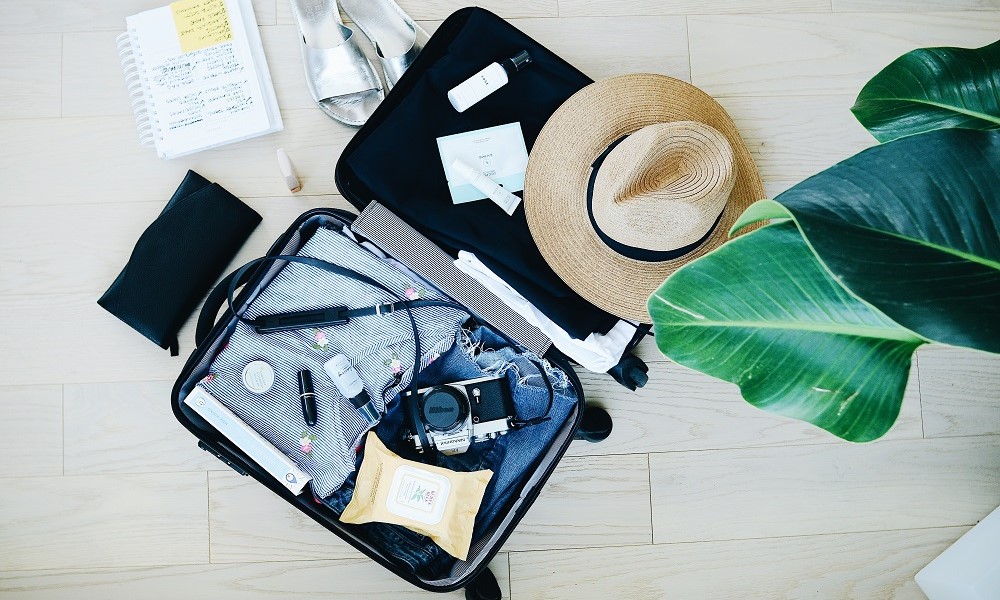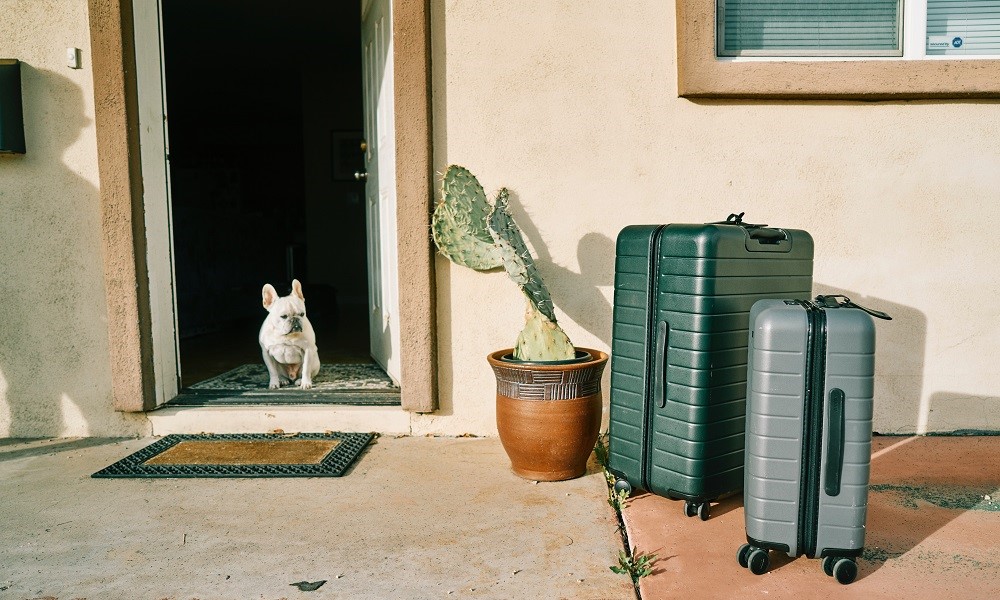Refusal of plastic, garbage sorting and other Zero-Waste habits have long come into the life of many of us. But on trips you need to start again and it seems to be very difficult. In this article we will tell you how to travel without leaving behind traces of waste and garbage.
Choose transport

You can make a vacation more environmentally friendly at the stage of its planning. Airplanes are considered the most harmful mode of transport for the world around the world, since during takeoff and landing very large emissions of carbon dioxide occur. Therefore, for traveling short distances, it is better to choose a train or bus. For example, a train from Moscow to St. Petersburg throws 29 kg of carbon dioxide, and the aircraft in the same direction is 93 kg.
Another advantage of trains: usually they arrive directly to the city center, where a taxi or bus would have to get from the airport.
Make a choice in favor of public transport working at the expense of electricity – a tram, a trolley, metro. But even a regular bus will turn out to be a more environmentally friendly option than the car, because it immediately carries a lot of passengers and a carbon trace for each is less.
If you decide to rent a car, give preference to electric cars or options with a hybrid engine – when touched and inhibited, there is no carbon dioxide emissions into the atmosphere.
And do not forget about bicycles and electric scooters – this way you can explore a new place with minimal harm to nature.
Collect a suitcase

The easiest way to reduce the number of inextricable waste is to abandon toilet belongs in plastic packaging. In addition, it helps to save not only a place, but also money. For example, 60 g of solid shampoo will be enough for 40 applications, and a 100-million liquid bottle of liquid-for only 20 uses.
Toothpaste
Trevel formats of toothpaste do not take up much space, but the refusal of them will reduce the amount of plastic. Replace the usual tube tooth tablets that are sold by weight. The bonus of such analogues – they are not considered liquid, so you can not worry about restrictions if you travel with a manual household.
Shampoo and hair balm
The same advantage is given by hard hair and body products. They not only occupy less space, but also retain more natural components.
Deodorant
Compressed gases contained in aerosols and plastic packaging of all standard deodorants cause great harm to the environment. In addition, they are forbidden to transport in a hand luggage on an airplane. A hard deodorant is an ideal replacement for traveling without plastic. It is a soap block of natural ingredients, which is enough for more than a year of daily use.
Reusable cotton pads and sticks
Bamboo cotton sticks and reusable cotton cotton pads can be washed and used again. They are made completely from natural materials – cotton, bamboo and starch, so they do not cause allergies, unlike their synthetic analogues.
Shoper

Take a reusable shoper bag and tissue bags with you. They will not take up a lot of space even in hand luggage and replace plastic and cellophane bags during shopping or going to the market.
A reusable bottle
One of the simplest and most possibly the best ways to reduce the amount of plastic during the trip is to purchase a reusable bottle for liquids.
Usually a person drinks two bottles of water per day. But each of them will become plastic in the trash because they cannot be used again, since they begin to secrete harmful toxins.
A reusable bottle is also a great way to save. Such a container can be carried with you to the plane and filled at the airport through a drinking fountain. In many cities they are installed in tourist places, on the streets and in shopping centers. Capture such a bottle in a coffee shop and ask to pour a drink into it – then you can also refuse cardboard cups and plastic covers for them. As a bonus, discounts are often made for such “savings” in institutions.
Useful tips

Choose hotels marked “eco”
Stop in hotels that use renewable energy sources, refuse disposable dishes, plastic packs, and also serve dishes in restaurants only from seasonal products. On OneTwotrip, such placement objects are marked by the eco-hotel filter.
Refuse toiletries in hotels
Small jars with shampoo, shower gel, soap and body lotion are better to leave untouched. After your eviction, they will be thrown away, even if you just opened them.
Say no plastic dishes
Food is a discharge that reserves an ecological trace in the form of packaging. When choosing a place for a snack, dwell on options with reusable plates and instruments. It is better to refuse tubes and plastic lids for glasses, and baking can be asked to wrap in a napkin.
Sort garbage
In almost all progressive cities, tanks with the possibility of garbage sorting are constantly found. Usually they are located on the streets, in hotels and shopping centers. If, for example, it was not possible to buy fruits by weight – wash the packaging from them at home, dry and throw it into the desired container.
Be careful about nature
Respect the environment: during walks, do not leave the designated ecotrop, and make bonfires only in the places specially provided for this. And bring with you equipment for collecting garbage: gloves, bags and containers.
Bring stories, not souvenirs

In traveling, we often ask ourselves the question of “what to give friends and relatives?” Most often, the choice falls on magnets, bells and figurines – as a rule, they stand and collect dust in the house of a person who has never been in this country. In the end, they will find themselves in the garbage bucket and replenish the ranks of city landfills.
If you can’t do without souvenirs, then abandon objects that are made of shells, corals, skins and animal bones. If possible, take things that are really useful to the recipient: for example, instead of a figurine, you can buy a bank of local jam or sweets from the market. For unusual souvenirs, go to second-hand and vintage shops-you can often find real treasures there: old books, cards, small interior items and traditional clothes. Or support the local business and local production that care about the environment.

